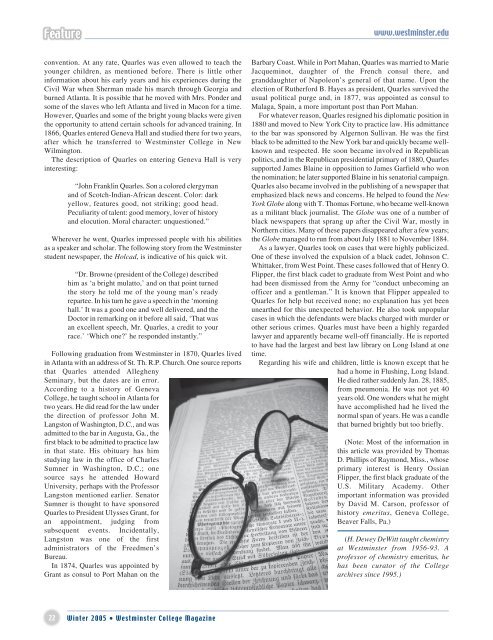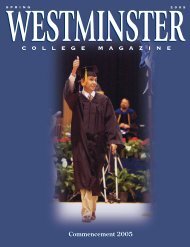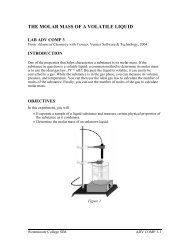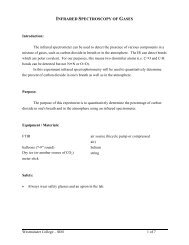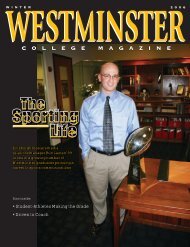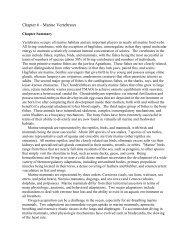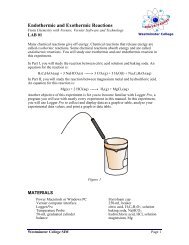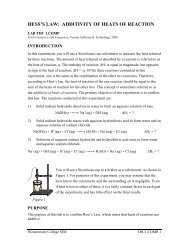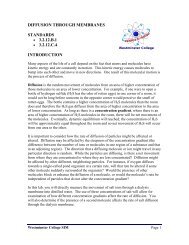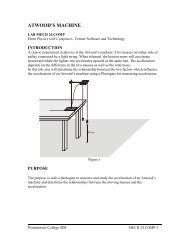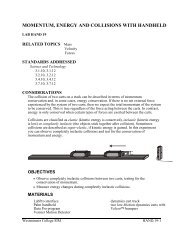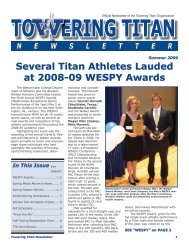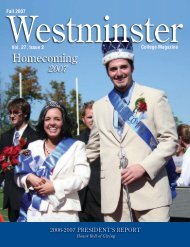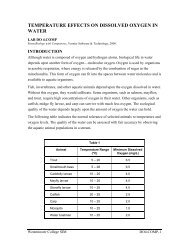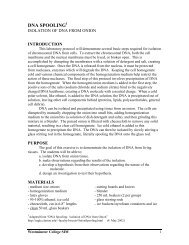download pdf - Westminster College
download pdf - Westminster College
download pdf - Westminster College
Create successful ePaper yourself
Turn your PDF publications into a flip-book with our unique Google optimized e-Paper software.
www.westminster.edu<br />
convention. At any rate, Quarles was even allowed to teach the<br />
younger children, as mentioned before. There is little other<br />
information about his early years and his experiences during the<br />
Civil War when Sherman made his march through Georgia and<br />
burned Atlanta. It is possible that he moved with Mrs. Ponder and<br />
some of the slaves who left Atlanta and lived in Macon for a time.<br />
However, Quarles and some of the bright young blacks were given<br />
the opportunity to attend certain schools for advanced training. In<br />
1866, Quarles entered Geneva Hall and studied there for two years,<br />
after which he transferred to <strong>Westminster</strong> <strong>College</strong> in New<br />
Wilmington.<br />
The description of Quarles on entering Geneva Hall is very<br />
interesting:<br />
“John Franklin Quarles. Son a colored clergyman<br />
and of Scotch-Indian-African descent. Color: dark<br />
yellow, features good, not striking; good head.<br />
Peculiarity of talent: good memory, lover of history<br />
and elocution. Moral character: unquestioned.”<br />
Wherever he went, Quarles impressed people with his abilities<br />
as a speaker and scholar. The following story from the <strong>Westminster</strong><br />
student newspaper, the Holcad, is indicative of his quick wit.<br />
“Dr. Browne (president of the <strong>College</strong>) described<br />
him as ‘a bright mulatto,’ and on that point turned<br />
the story he told me of the young man’s ready<br />
repartee. In his turn he gave a speech in the ‘morning<br />
hall.’ It was a good one and well delivered, and the<br />
Doctor in remarking on it before all said, ‘That was<br />
an excellent speech, Mr. Quarles, a credit to your<br />
race.’ ‘Which one?’ he responded instantly.”<br />
Following graduation from <strong>Westminster</strong> in 1870, Quarles lived<br />
in Atlanta with an address of St. Th. R.P. Church. One source reports<br />
that Quarles attended Allegheny<br />
Seminary, but the dates are in error.<br />
According to a history of Geneva<br />
<strong>College</strong>, he taught school in Atlanta for<br />
two years. He did read for the law under<br />
the direction of professor John M.<br />
Langston of Washington, D.C., and was<br />
admitted to the bar in Augusta, Ga., the<br />
first black to be admitted to practice law<br />
in that state. His obituary has him<br />
studying law in the office of Charles<br />
Sumner in Washington, D.C.; one<br />
source says he attended Howard<br />
University, perhaps with the Professor<br />
Langston mentioned earlier. Senator<br />
Sumner is thought to have sponsored<br />
Quarles to President Ulysses Grant, for<br />
an appointment, judging from<br />
subsequent events. Incidentally,<br />
Langston was one of the first<br />
administrators of the Freedmen’s<br />
Bureau.<br />
In 1874, Quarles was appointed by<br />
Grant as consul to Port Mahan on the<br />
Barbary Coast. While in Port Mahan, Quarles was married to Marie<br />
Jacqueminot, daughter of the French consul there, and<br />
granddaughter of Napoleon’s general of that name. Upon the<br />
election of Rutherford B. Hayes as president, Quarles survived the<br />
usual political purge and, in 1877, was appointed as consul to<br />
Malaga, Spain, a more important post than Port Mahan.<br />
For whatever reason, Quarles resigned his diplomatic position in<br />
1880 and moved to New York City to practice law. His admittance<br />
to the bar was sponsored by Algernon Sullivan. He was the first<br />
black to be admitted to the New York bar and quickly became wellknown<br />
and respected. He soon became involved in Republican<br />
politics, and in the Republican presidential primary of 1880, Quarles<br />
supported James Blaine in opposition to James Garfield who won<br />
the nomination; he later supported Blaine in his senatorial campaign.<br />
Quarles also became involved in the publishing of a newspaper that<br />
emphasized black news and concerns. He helped to found the New<br />
York Globe along with T. Thomas Fortune, who became well-known<br />
as a militant black journalist. The Globe was one of a number of<br />
black newspapers that sprang up after the Civil War, mostly in<br />
Northern cities. Many of these papers disappeared after a few years;<br />
the Globe managed to run from about July 1881 to November 1884.<br />
As a lawyer, Quarles took on cases that were highly publicized.<br />
One of these involved the expulsion of a black cadet, Johnson C.<br />
Whittaker, from West Point. These cases followed that of Henry O.<br />
Flipper, the first black cadet to graduate from West Point and who<br />
had been dismissed from the Army for “conduct unbecoming an<br />
officer and a gentleman.” It is known that Flipper appealed to<br />
Quarles for help but received none; no explanation has yet been<br />
unearthed for this unexpected behavior. He also took unpopular<br />
cases in which the defendants were blacks charged with murder or<br />
other serious crimes. Quarles must have been a highly regarded<br />
lawyer and apparently became well-off financially. He is reported<br />
to have had the largest and best law library on Long Island at one<br />
time.<br />
Regarding his wife and children, little is known except that he<br />
had a home in Flushing, Long Island.<br />
He died rather suddenly Jan. 28, 1885,<br />
from pneumonia. He was not yet 40<br />
years old. One wonders what he might<br />
have accomplished had he lived the<br />
normal span of years. He was a candle<br />
that burned brightly but too briefly.<br />
(Note: Most of the information in<br />
this article was provided by Thomas<br />
D. Phillips of Raymond, Miss., whose<br />
primary interest is Henry Ossian<br />
Flipper, the first black graduate of the<br />
U.S. Military Academy. Other<br />
important information was provided<br />
by David M. Carson, professor of<br />
history emeritus, Geneva <strong>College</strong>,<br />
Beaver Falls, Pa.)<br />
(H. Dewey DeWitt taught chemistry<br />
at <strong>Westminster</strong> from 1956-93. A<br />
professor of chemistry emeritus, he<br />
has been curator of the <strong>College</strong><br />
archives since 1995.)<br />
22 Winter 2005 • <strong>Westminster</strong> <strong>College</strong> Magazine


